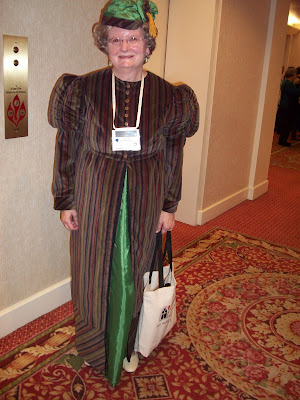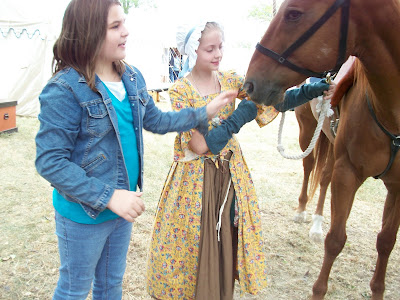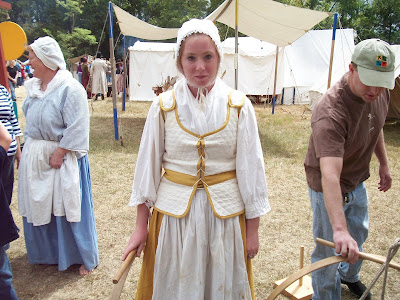
[Did you know? The illustration here denotes that this article is craft-related for Writers.] Thanks to Randy Ingermanson for these "timely" tips at the end of the year.
Organizing: Your Business Plan
by Randy Ingermanson
(Used with permission)
If you're writing fiction with the hope of getting it
published someday, then you're in business. If you're
in business, then you need a business plan. If you have
a business plan, then it needs to be updated annually.
I like to update my business plan every year at the
tail end of December. Not much else is happening then.
I've usually got time to think about what went well
during the past year, what went badly, and what went
undone.
It's not uncommon for a lot to go undone in a year.
When you've got a lot of big plans for a year, you'll
do well to get 20% of them done by the end of the year.
A successful year is one in which you got the most
important 20% done.
I hope that's an encouragement to you. Your life can be
successful if you only get the most important 20% of
your projects done.
What goes into a business plan? I like to include the
following major sections:
* Introduction. A one-page summary of where things
stand, highlighting your long-term goals and your major
achievements of the past year. If you're just starting
your business, you won't have any achievements yet, but
you can still summarize your major goals for your
business (Example: "I want to publish a novel with a
traditional royalty-paying publisher.") You can also
summarize where you are on the road to reaching your
goals.
* Business Details. Several pages that define those
pesky details about money. If your business is earning
money, how much did it earn in the last year and what
were the main sources of revenue? What were the costs
of doing business in the past year? What major projects
do you intend to take on in the next year? What
expenses will you incur and how will you pay for them?
* Detailed sections on each of the major activities of
your business. If you've got only one major activity,
that may be good -- it means you're focused -- but the
hazard is that all your eggs are in one basket. If
you've got several major activities, that means you're
diversified, which is good, but the hazard is that you
may be spreading yourself too thin. This is a good time
to ask yourself the hard questions about whether you're
too narrowly focused or spread too thin. Which of your
activities generates the most revenue? Which creates
the biggest costs? Which gives you the most personal
satisfaction? The answers to these questions will give
you ideas on what directions to take in the coming
year, and on what to prune out of your life.
* Summary. Make a list of the main projects you want to
work on in the coming year. These should be fully
actionable projects -- by which I mean they should be
things you can take action on AND things you can
completely control. "Sending out queries to at least 20
agents" is actionable and you have complete control
over whether you do it or not. "Signing with a major
agent" is not fully actionable because you can't make
an agent want to sign you on. "Polishing my manuscript"
is fully actionable. "Selling my novel" is not.
My business plan for 2010 was fairly long -- eleven
pages. Because it was a modification of the business
plan for the previous year, it took me only one
afternoon to write -- about three hours of actual
effort.
I didn't accomplish even 20% of my goals for 2010. I
did hit my #1 most important goal, and I got about
halfway through my #2 most important goal. I didn't
even make a start on two other goals that I considered
very important at the beginning of the year.
In looking back, I can see two important reasons why I
got less done than I'd planned. Neither of them was
something I could have foreseen. I don't think I
handled either of them as well as I could have.
Sometimes, all you can do is muddle on.
I would judge the year moderately successful because I
did get my #1 project done. (Achieving my #2 goal would
have made the year a smashing success.)
What about you? Do you have a business plan for your
writing business? How many hours would it take to write
a five page document that spells out where you are now,
where you want to go eventually, and your actionable
projects for the coming year?
Which 20% of the things that you want to do in the
coming year are the most critical to your ultimate
success as a writer? Are there one or two items on your
list that would make the coming year a success -- even
if you achieved only those?
_____________________________________________________
Award-winning novelist Randy Ingermanson, "the
Snowflake Guy," publishes the Advanced Fiction Writing
E-zine, with more than 23,000 readers, every month. If
you want to learn the craft and marketing of fiction,
AND make your writing more valuable to editors, AND
have FUN doing it, visit
http://www.AdvancedFictionWriting.com.
Download your free Special Report on Tiger Marketing
and get a free 5-Day Course in How To Publish a Novel.
_______________________________________________________
_______________________________________________________













































































